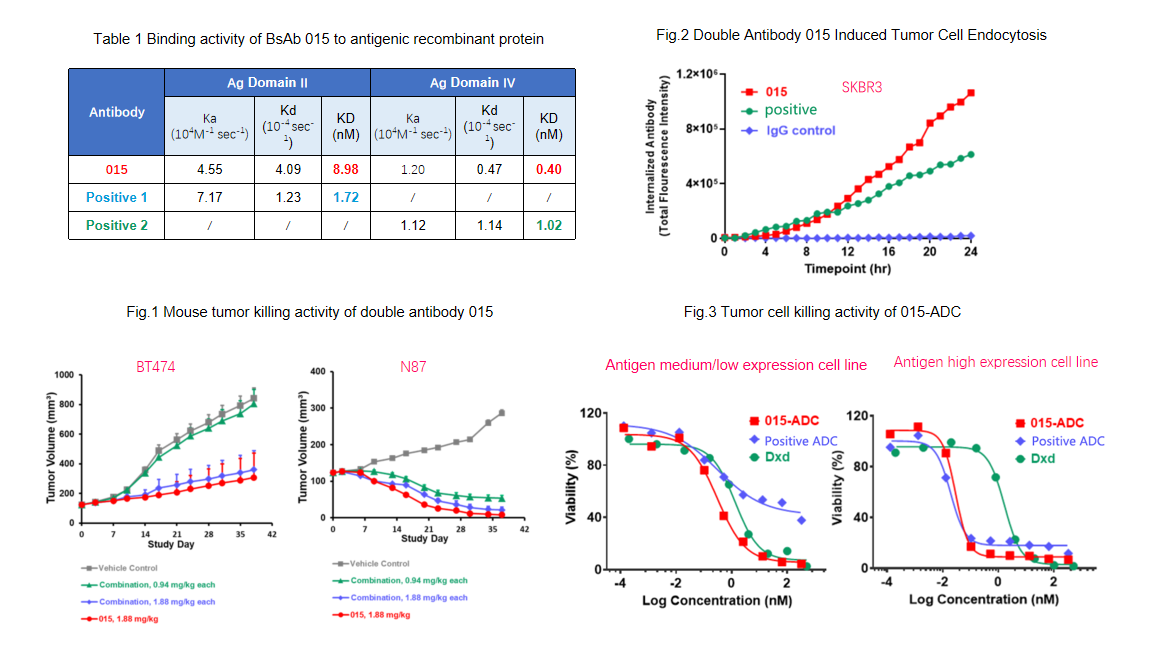Cases
Shared Light Chains Bispecific Antibodies (AI-Assisted Design)
Background:
Bispecific monoclonal antibodies (BsAb) are artificially designed special antibodies that can bind to two different antigens simultaneously and have broad application prospects in immune therapy for cancer. One of the two antigen binding arms of the bispecific antibody binds to the target antigen, while the other binds to a marker antigen on effector cells (T cells, NK cells, etc.), which can activate the effector cells to kill tumor cells. Taking Catumaxomab (a Bispecific Antibody drug approved for sale in 2009) as an example, its two antigen-binding arms respectively bind to the CD3 site of cytotoxic T cells and the EpCAM site of tumor cells, guiding T cells to kill target cells. Bispecific antibodies also have other applications such as blocking signal pathways when binding to signal receptors, and forming functional complexes when linking proteins.
Process:
The key to constructing bispecific antibodies lies in achieving specific pairing of two different heavy chains and two different light chains. Currently, the dimerization of two different heavy chains has been solved, but correctly pairing two different light chains is still a challenge. Using random light chains for assembly results in only 25% correctly assembled antibodies. To bypass this problem, a method is to construct a shared light chain bispecific antibody by using one common light chain combined with two different heavy chains. Only three peptide chains need to be expressed, resulting in significant advantages in antibody manufacturing.

